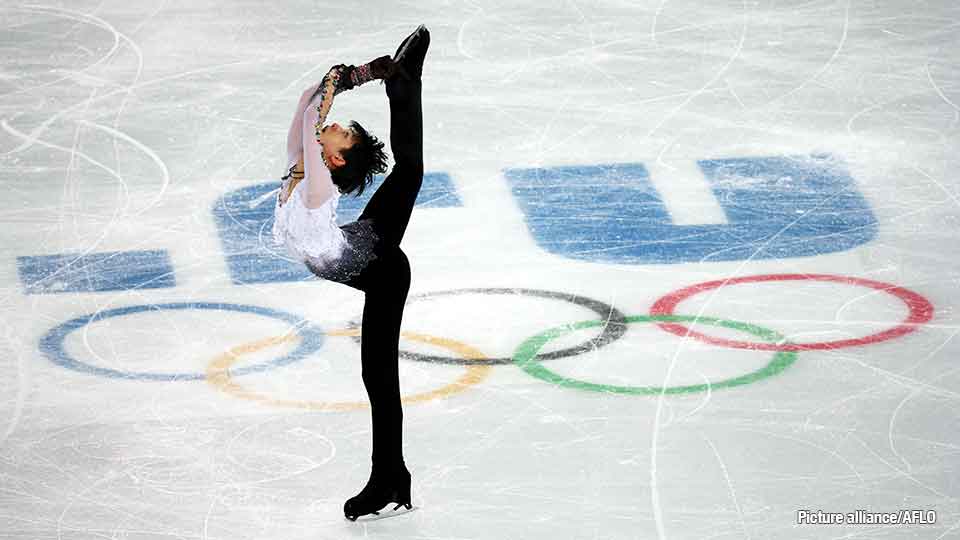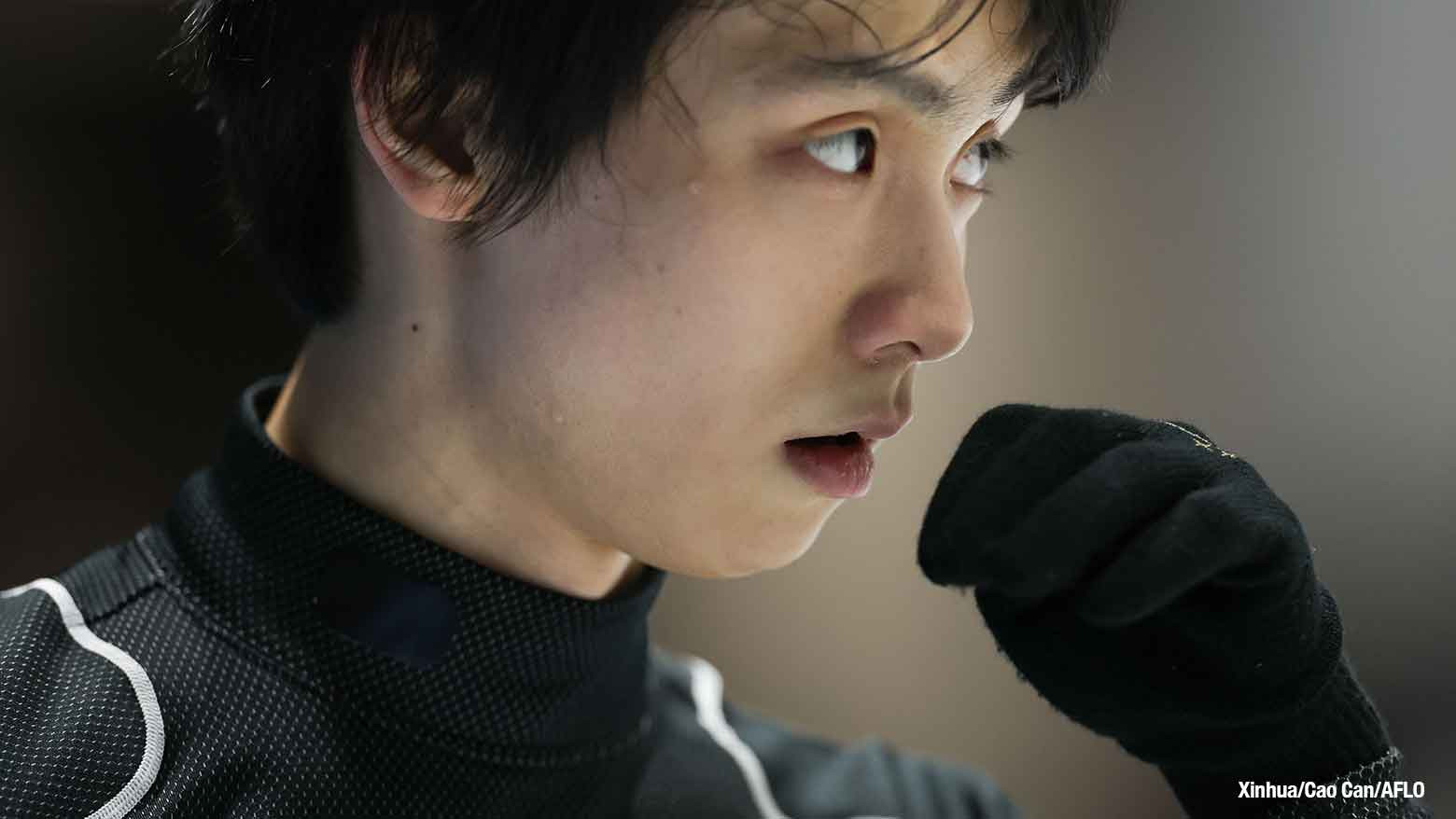From the age of 4, Hanyu would spend countless hours practicing his moves at a rink in Sendai City, in northeastern Japan. Ten years later, he competed in international competition at the World Junior Championships in Bulgaria, finishing 12th.

It wasn’t long before he was competing at senior level, winning silver at the 2011 Four Continents Championships in Taiwan. Then disaster struck.
A few weeks later, Hanyu was practicing at his local rink in Sendai when Japan’s 2011 earthquake and tsunami hit. The shaking destroyed the rink and caused extensive damage to his family home. He and his family were forced to evacuate. It was a major setback for the young athlete, who was just beginning to make big strides in his sport.

“I lost my focus,” recalls Hanyu. “I had to prioritize other things—moving and getting my life back on track. I started to wonder if I should even keep skating. I felt like I wanted to do volunteer work instead.”
In the end, the answer was to combine the two. Hanyu found new purpose by skating at charity shows. The more he skated, the more motivated he became. Before long, he was setting his sights on the 2014 Winter Olympics in Sochi, Russia.
Rising to the top
Hanyu’s Olympic debut came on February 13 that year in the men’s short program. He landed all three jumps, finishing at the top of the table with 101.45 points. The following day, a series of falls in the free-skating program threatened to undermine all his hard work.

Ultimately, however, he did enough over both programs to hang onto the lead, becoming Japan’s first-ever gold medal-winning men’s figure skater. “It hasn’t sunk in,” he said afterwards. “I’ve won gold, carried by the hopes of so many people, including all those affected by the disaster.”

Struggles and setbacks
No sooner had Hanyu achieved Olympic glory than he was beset by a series of injuries. Chronic back pain forced him to skip a competition in Finland in October, 2014.
Then, in November, while warming up for the Cup of China in the Grand Prix series, he collided with a Chinese skater, suffering a number of injuries.
But he returned to the ice, and clinched second place in the free skate.
“I don’t mind challenges,” he said at the time. “The way I see it, beyond every hurdle a whole new world is waiting.”
He went on to claim victory in the Grand Prix Final, becoming the first Japanese male skater to win it two years in a row.
Drawing inspiration from the past
In the 2015-2016 season, Hanyu chose a musical composition called Seimei, a traditional Japanese tune, to play during his free skate. It was an inspired choice, helping him to win the 2015 Grand Prix Final in Barcelona with a record-high total score of 330.43.
He picked Seimei again to accompany his free-skate routine at the PyeongChang Winter Olympics in South Korea in 2018. “I decided to aim for the Olympics with Seimei when I first put together my free-skate routine two seasons ago,” he said at the time. “It always feels great to perform it.”

Back-to-back Olympic golds
Hanyu arrived in South Korea just three months after suffering an ankle injury. As defending champion, he was under enormous pressure. Much of it came from himself. “I want to put on a dream performance on the dream stage,” he declared.
After the short program, he was leading the field with a tally of 111.68, close to his own world record.
Next was the free skating, and with his Seimei program Hanyu delivered a brilliant artistic performance, overshadowed only by America’s Nathan Chen, who pulled off a record six quad jumps to claim victory. Chen’s performance was not enough to make up for a disappointing effort the day before, however, leaving Hanyu top overall with a total score of 317.85. He was the first person in 66 years to win back-to-back Olympic golds in men’s individual figure skating.

And he was already contemplating his next challenge.
"The axel is the king of the jumps,” he said, referring to a move that involves leaping into the air while facing forwards, spinning one-and-a-half times, and landing backwards. “I’m aiming to do a quadruple axel.” A quad axel involves four-and-a-half revolutions. No one has ever cleanly landed it before.
Hanyu and Chen
In the years that followed the PyeongChang Games, Hanyu and Chen built up an exciting rivalry.
Hanyu lost out to his American challenger at the 2019 World Championship in Saitama. It was the same story the next year, when Chen took first prize at the Grand Prix Final in Torino. Hanyu had landed a remarkable succession of jumps in his free-skating effort, but it wasn’t enough.

It was Hanyu’s turn to taste victory at the Four Continents Figure Skating Championships in Seoul in 2020. In December that year, he won his second successive Japan Championships, booking himself a spot at Beijing.
His first appearance in Beijing, on Tuesday, saw him finish a disappointing eighth in the short program, well behind winner Chen and second-placed Kagiyama Yuma.
If Hanyu is to have any chance of coming from behind to claim a third successive gold, it may hinge on a pledge he made before the Games.
"I know there are other ways to win,” he said. “But the whole reason for taking on the challenge of Beijing is the quadruple axel. I’m going to do both: land the jump and win the gold."
